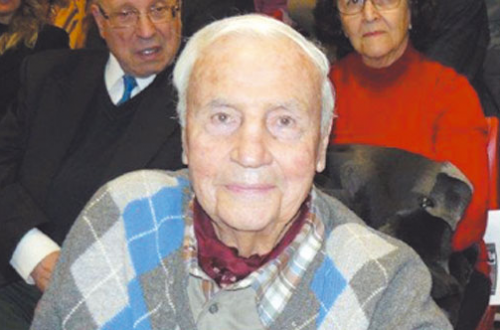Norman Borlaug, father of the green revolution of the 1960s, has died. The Telegraph obituary notes the continued controversy over attempts to use science to improve food production:
Borlaug’s “Green Revolution” was not “green” in the modern sense. High yields demanded artificial fertiliser, chemical pesticides and new soil technology. As a result of this he was vilified by many in the environmental movement in the securely affluent West, some of whom argued that higher food production sustains more people and thus poses a threat to the natural environment.
It was somewhat ironic, therefore, that his interest in plant breeding had been sparked by his own horror at the environmental devastation and dustbowls of the 1930s, when native deer and wild turkeys disappeared from the American Midwest. Many blamed the phenomenon on a combination of technological farming and dry weather conditions. But Borlaug’s staunch belief that the problem was not too much technological farming but too little has proved to be the correct one. The introduction of new, drought resistant strains of crops has made dust bowl conditions rare because few crops have failed. Moreover, more productive hybrids have enabled marginal land to be taken out of production; wild areas have been reclaimed for nature and the deer and wild turkeys have returned. Borlaug believed that similar results could be achieved elsewhere.
It was also largely left to Borlaug to argue the moral imperative of food for the world’s malnourished – whether they “should” have been born or not, he argued, once alive they must have enough to eat.
[…]
The opposition to Borlaug’s intensive farming methods was exacerbated by the negative publicity surrounding genetic engineering. Borlaug’s work was not, properly speaking, in genetic modification. He used so-called natural methods of plant breeding and was wary of the monopolistic agenda of big agribusiness.But he saw genetic modification as only a refinement of old plant breeding methods and became a strong advocate of its possibilities, both to enable more mouths to be fed and to help the environment. By producing more food from less land, Borlaug argued, high-yield farming would help preserve Africa’s wild habitats from further depletion by slash-and-burn subsistence agriculture. The battle over biotech products, he reflected bitterly, was being fought mainly in the rich West, where “governments collectively subsidise their very small farming populations to the tune of $350 billion a year and where many of the major problems of human nutrition are related to obesity”.
Luddite views on food production in the West, from Prince Charles’ views to the Daily Mail’s stories about Frankenstein foods, continue to be spread. As Borlaug noted, concerns about biotech continue to be a largely Western pre-occupation, but the effect on the poor and starving is very real. In the past GM Maize has been denied to starving people, because of chimeric health concerns arising in the West. Borlaug had to deal with skepticism when he started to implement his green revolution. Time has not made the job easier for those who follow him.
